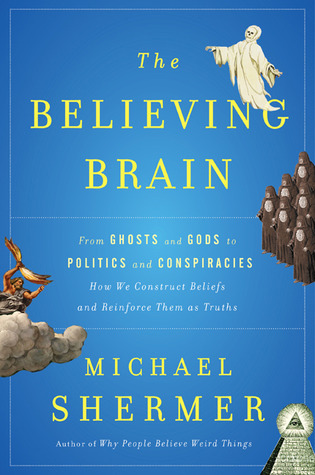More on this book
Community
Kindle Notes & Highlights
Read between
September 13 - October 30, 2019
Beliefs come first, explanations for beliefs follow. I call this process belief-dependent realism, where our perceptions about reality are dependent on the beliefs that we hold about it. Reality exists independent of human minds, but our understanding of it depends upon the beliefs we hold at any given time.
asma and 1 other person liked this
once people commit to a belief, the smarter they are the better they are at rationalizing those beliefs. Thus: smart people believe weird things because they are skilled at defending beliefs they arrived at for nonsmart reasons.
confirmation bias, or the tendency to seek and find confirmatory evidence in support of already existing beliefs and ignore or reinterpret disconfirming evidence. The confirmation bias is best captured in the biblical wisdom Seek and ye shall find.
hindsight bias is the tendency to reconstruct the past to fit with present knowledge.
The self-justification bias is the tendency to rationalize decisions after the fact to convince ourselves that what we did was the best thing we could have done.
smart people believe weird things because they are better at rationalizing their beliefs that they hold for nonsmart reasons.
attribution bias, or the tendency to attribute different causes for our own beliefs and actions than that of others.
status quo bias, or the tendency to opt for whatever it is we are used to, that is, the status quo.
endowment effect, or the tendency to value what we own more than what we do not own.
framing effect, or the tendency to draw different conclusions based on how data are presented.
anchoring effect, or the tendency to rely too heavily on a past reference or on one piece of information when making decisions.
inattentional blindness, or the tendency to miss something obvious and general while attending to something special and specific.


